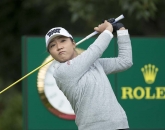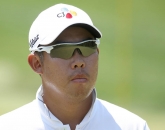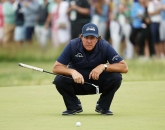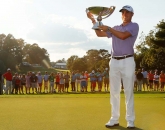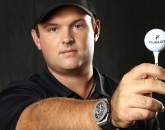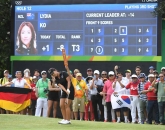
 That dream became reality in February 1921 when the PGA of America received a surprise invitation from the owners of the new Gleneagles Hotel in Scotland. Advertised as “The Palace in the Glens” and “The Eighth Wonder of the World,” the Caledonian Railway Company cordially invited them to send a representative group of professionals to play in their Glasgow Herald-sponsored ‘1,000 Guinea Golf Tournament.’ Scheduled for the first week in June, they even penciled in a ‘GB versus USA International Challenge Match’ for the 6th - the day preceding the main event.
That dream became reality in February 1921 when the PGA of America received a surprise invitation from the owners of the new Gleneagles Hotel in Scotland. Advertised as “The Palace in the Glens” and “The Eighth Wonder of the World,” the Caledonian Railway Company cordially invited them to send a representative group of professionals to play in their Glasgow Herald-sponsored ‘1,000 Guinea Golf Tournament.’ Scheduled for the first week in June, they even penciled in a ‘GB versus USA International Challenge Match’ for the 6th - the day preceding the main event.
Described in the cablegram as: “a massive handsome affair and quite suitable to represent the championship of the world,” the invitation was enthusiastically accepted along with another from the British PGA to play in the Open Championship at St Andrews two weeks later. The only problem now was finding the money and while Mr Jermain took no part in the actual organization, he did donate a sizable sum to “The British Open Championship Fund” set up by James Hartnett, Circulation Manager of Golf Illustrated magazine, to cover travel expenses.
Setting sail from New York on 23 May onboard RMS Aquitania the American ‘team’ landed in Southampton ten days later. It was not an auspicious start. Taking the sleeper train from Southampton to Glasgow many arrived in Scotland still struggling to overcome the effects of sea-sickness. Not that it made much difference to the quality of the side. Established players like Jim Barnes and Gene Sarazen had refused the trip and apart from Walter Hagen - who still had to make his mark in Britain despite being a two-time US Open champion - the group included a motley bunch of inexperienced pros like Clarence Hackney, ‘Wild Bill’ Mehlhorn and Tom Kerrigan. Indeed, the nearest the ‘American’ side came to star players were Scottish exiles Jock Hutchison (who went on to win the Open at St Andrews two weeks later) and the 1908 US Open champion, Fred McLeod, who later declared that he only wanted to return to Scotland to visit his elderly mother.
Lying in wait at Gleneagles was a British side that included the legendary ‘Triumvirate’ of Harry Vardon, JH Taylor and James Braid. No longer the players they once were at least they were joined by reigning US Open champion Edward Ray and the 1920 Open winner, George Duncan. Along with rising stars Abe Mitchell and Arthur Havers, it definitely looked a touch one-sided with veteran Scottish professional Andra Kirkaldy predicting a complete whitewash saying, “Those Yanks haven’t got a chance in hell.”
Pages
Click here to see the published article.


